Macchiato vs. Latte Difference Between Coffees Explained

Macchiato vs Latte What Are the Differences? Coffee Affection
Latte vs Macchiato: Key Differences. Flavor Profile: Macchiatos have a bold, espresso-dominant flavor due to a higher espresso-to-milk ratio, while Lattes are milder and creamier with more milk. Milk Content and Texture: Lattes combine steamed milk with espresso for a creamy texture, whereas Macchiatos feature minimal milk, typically just a froth topping.
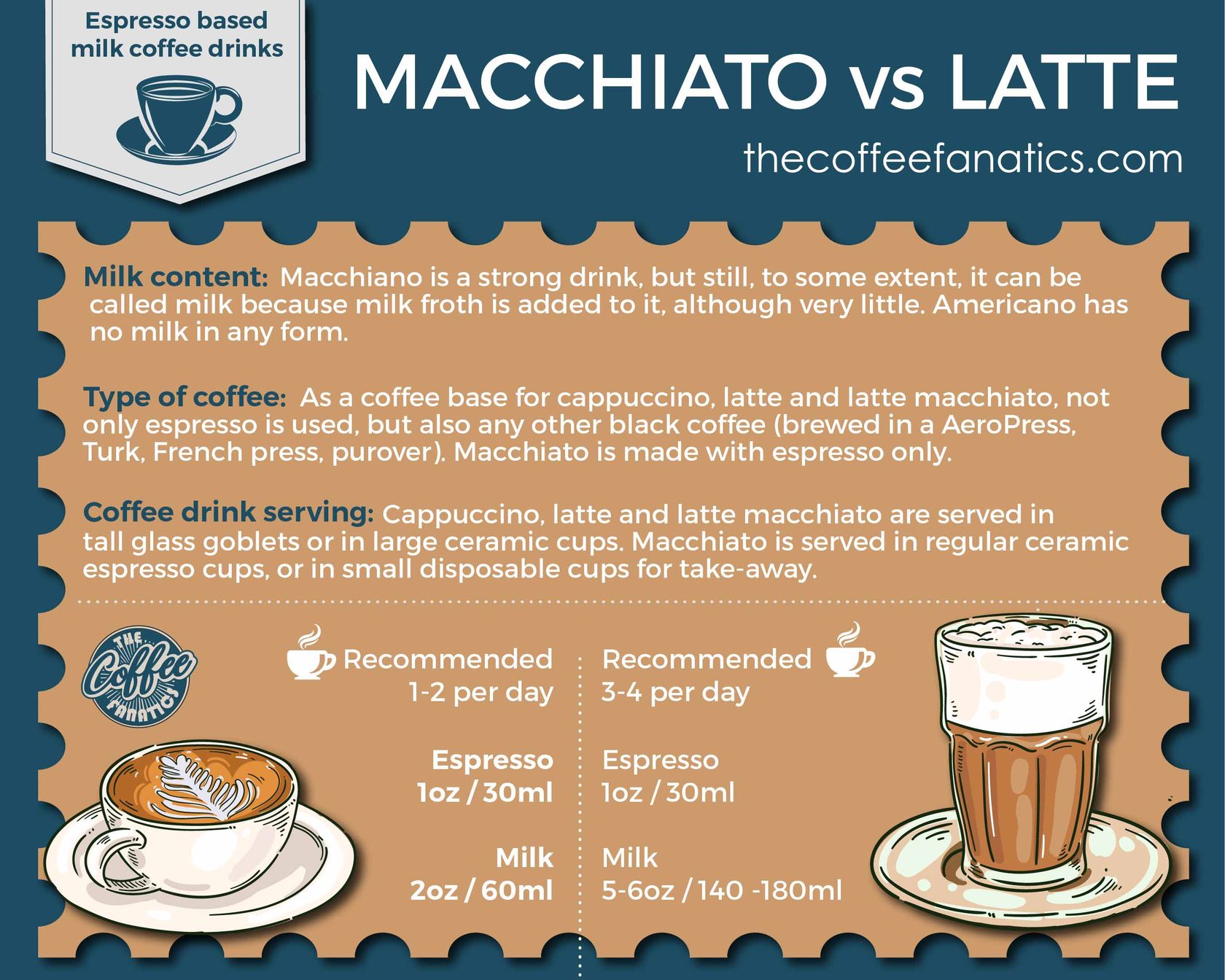
What is a Macchiato coffee? History of Drink
Brewing. Updated: Aug 31 2023. Macchiato vs latte: both these drinks were invented by Italians, yet they each serve a different purpose in the coffee world. The macchiato is a truly classic Italian beverage that celebrates espresso, while lattes are a creamier option with flavor add-ins that make them a hard choice to resist as well.

Cappuccino vs. Latte vs. Macchiato Differences Explained
Ingredients and Components. A Macchiato is an espresso-based beverage where a small amount of steamed milk is added to the espresso. The milk-to-coffee ratio in a traditional macchiato is 1:2. In comparison, a Latte combines espresso, steamed milk, and a layer of microfoam. A typical latte has a 2:1 milk-to-coffee ratio.

Difference between macchiato and latte knowrilo
And yes the latte macchiato is called that because it's marked with the shot of espresso. Now you know what each coffee drink looks like (roughly), let's get into the finer details of each of them and really compare them. 1. Milk content - lattes always have more. Milk content is always important.

Latte vs Macchiato A COMPARISON of Two Classic Coffee Drinks
In contrast, a macchiato is made with a single shot of espresso. And it only has milk foam on top. Macchiatos were created in order to celebrate espresso. The difference in the amount of milk affects the taste and consistency of each drink. A latte is smoother and creamier, while a macchiato has a much bolder espresso flavor.

Flat White Coffee Vs Latte bebahilmi1204
Latte vs. Macchiato Usage and Examples. A Latte is a popular coffee drink that combines espresso with steamed milk and a layer of milk foam on top. The milk-to-coffee ratio in a latte is usually 2:1, giving it a creamy and mild taste. Lattes are a popular choice for those who enjoy a smoother, less intense coffee flavor.
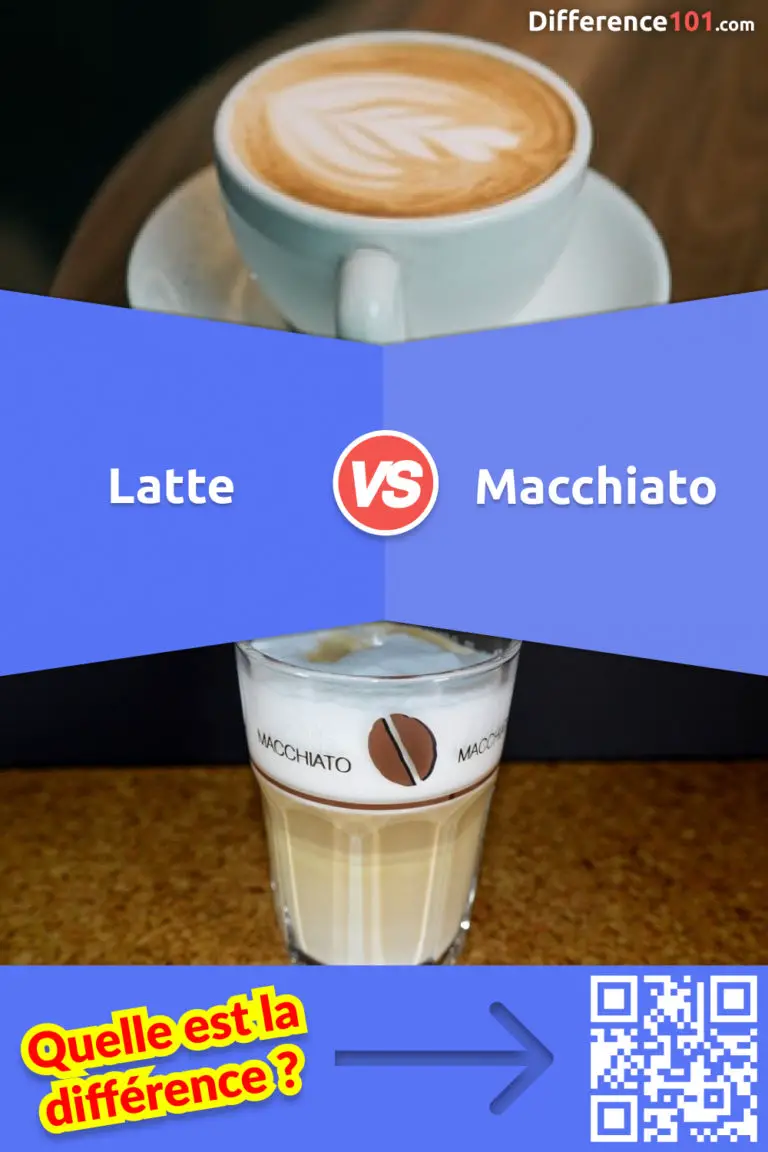
Latte vs. Macchiato Les 11 principales différences, Avantages et Inconvénients Difference 101
Caramel Macchiato vs Iced Latte. A caramel macchiato is a sweetened version of a traditional macchiato. It includes the addition of vanilla syrup to the milk before the espresso is added, and it is topped off with a caramel drizzle. An iced latte, on the other hand, is a simpler drink consisting of espresso, cold milk, and ice.
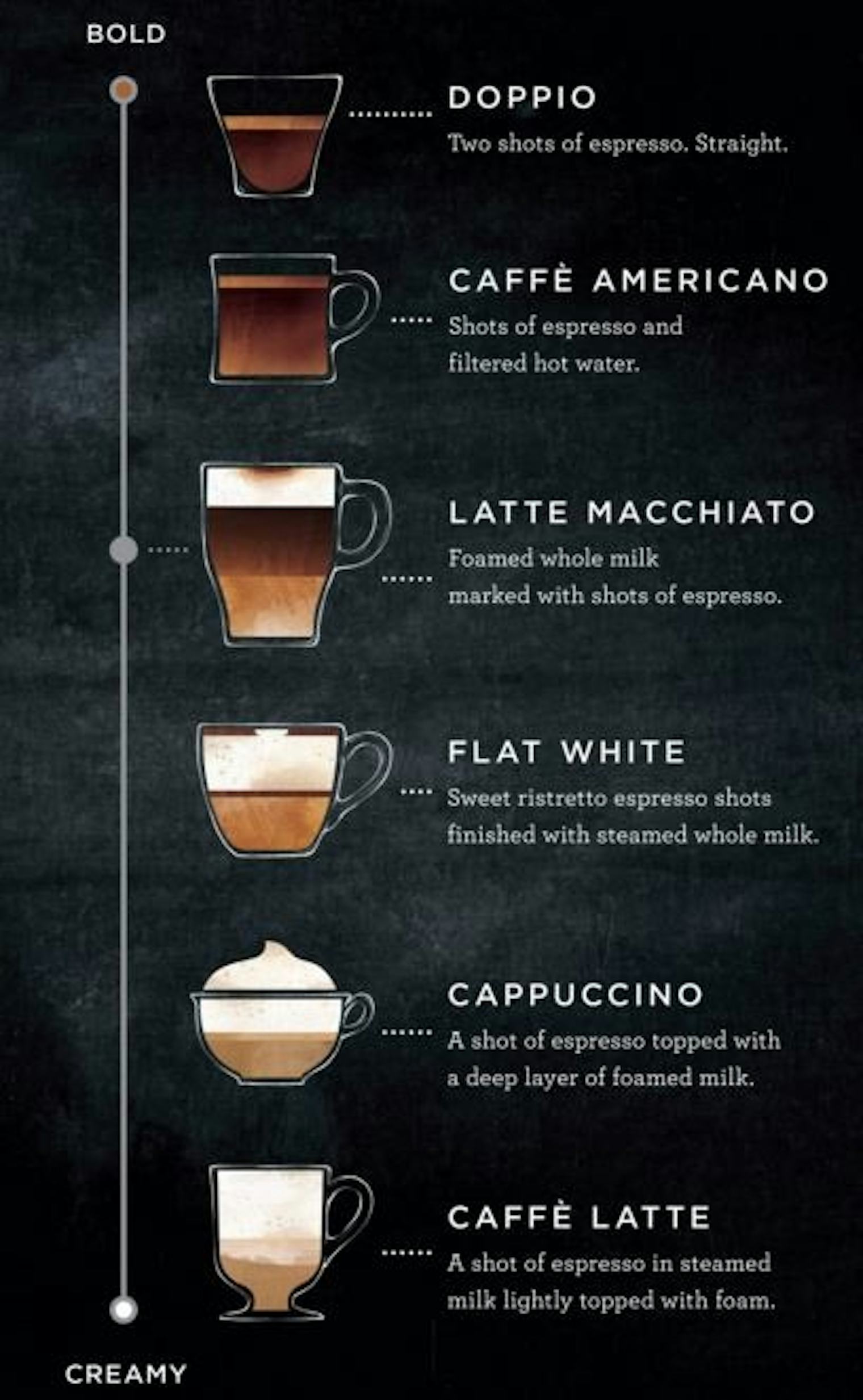
What's The Difference Between A Starbucks Latte Macchiato And A Flat White? Both Are An Espresso
The phrase "caffe macchiato" roughly means "marked coffee" in Italian, and the phrase "caffè latte" roughly means "milk coffee." A macchiato has less milk than a latte. The only milk in a macchiato is steamed, hot milk. A latte has more hot steamed milk with an additional frothed milk topping and sometimes a dollop of cream.
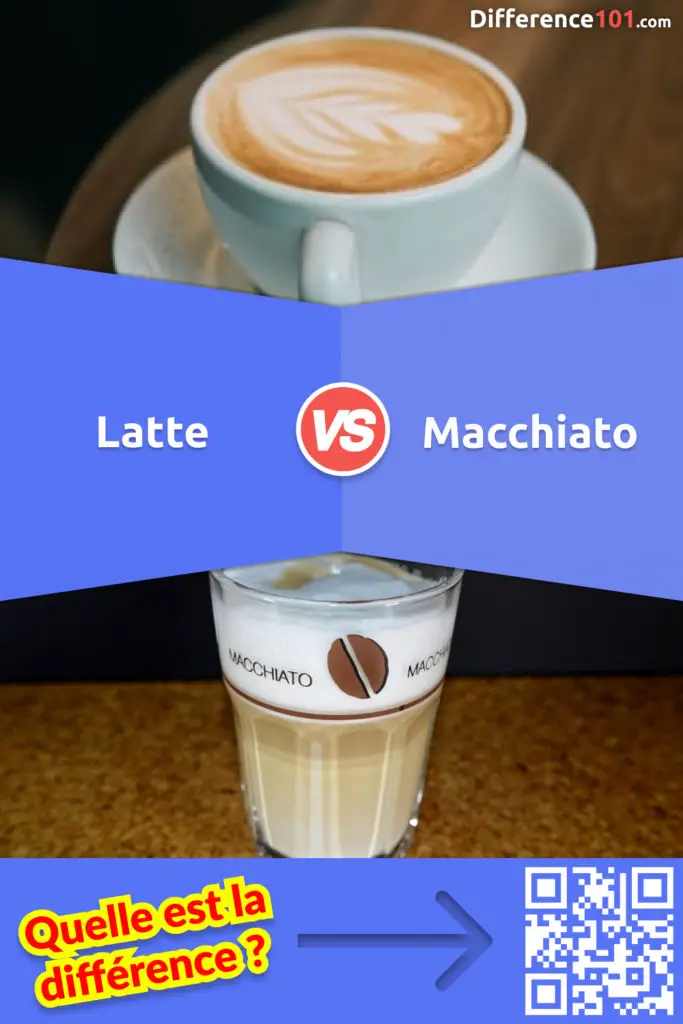
Latte vs. Macchiato Les 11 principales différences, Avantages et Inconvénients Difference 101
A cappuccino has 68 mg of caffeine. A latte has 68 mg of caffeine. A macchiato has 136 mg of caffeine. ( source) As you can see, the cappuccino and latte have the same amount of caffeine because both coffees use the same amount of espresso. Because a macchiato uses a double shot of espresso, the caffeine content is also doubled.
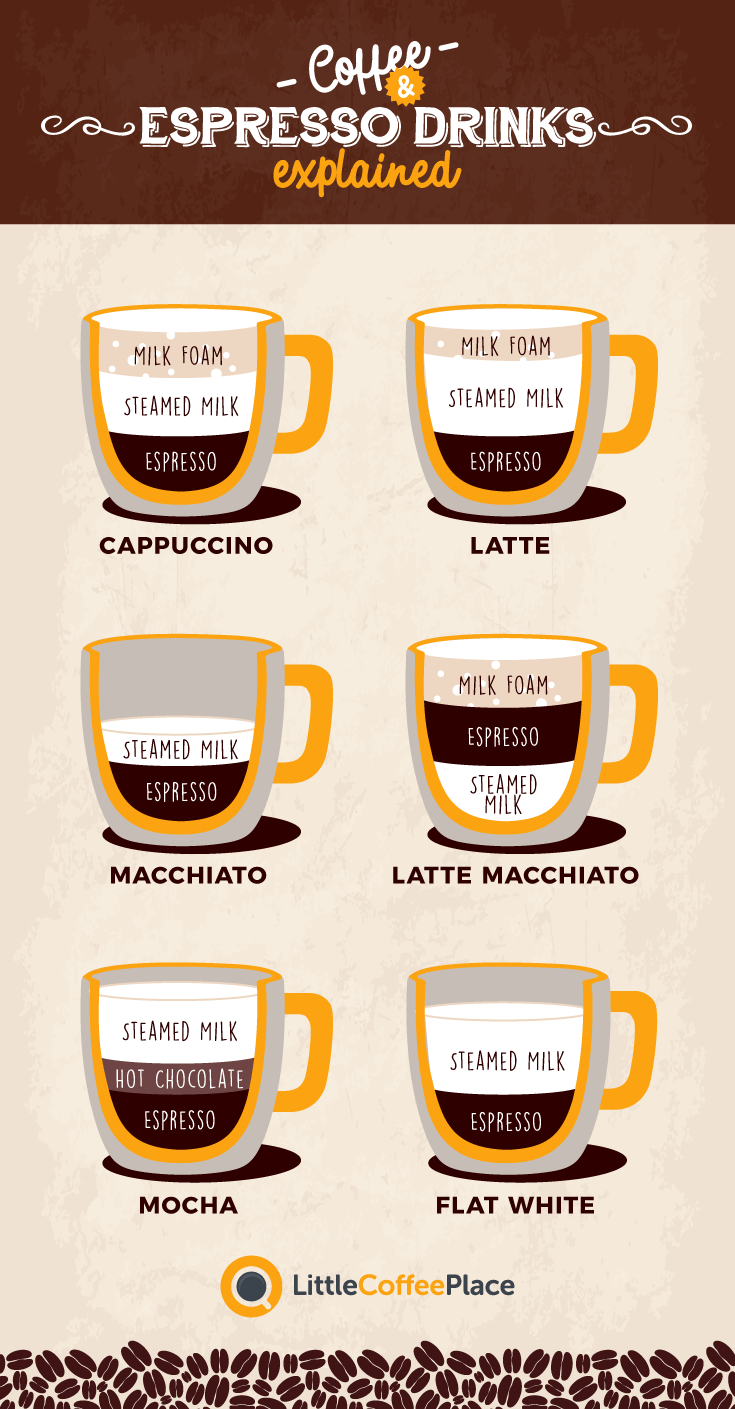
Cappuccino vs Latte vs Macchiato What's The Difference?
Here is the most basic answer: the difference between these two drinks is the espresso to steamed milk ratio and the amount of milk foam used. Which are: Espresso Macchiato: An espresso shot with a teaspoon of steamed milk and a little milk foam. Latte Macchiato: A double shot of espresso with steamed milk and milk foam in a ratio of 1:2:2.

Macchiato vs Latte Espresso and Milk in Different Ways dripped.coffee
Latte: A standard latte is made with a higher quantity of milk compared to a macchiato, leading to a higher calorie count. For example, a 16-ounce latte made with whole milk can contain around 220 calories. However, the higher milk content also means more calcium and protein.
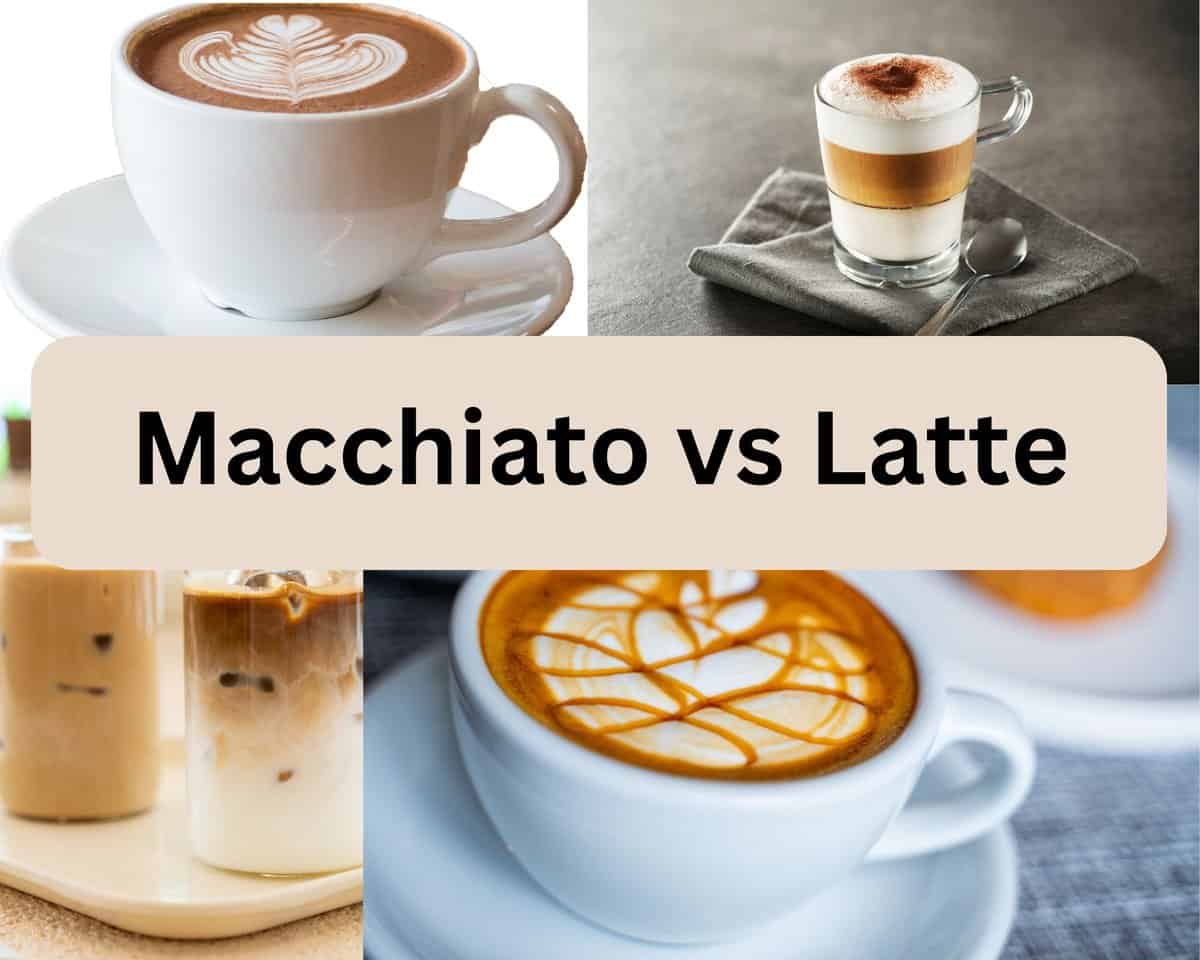
Macchiato vs. Latte Drizzle Me Skinny!
Our Latte Macchiato and classic Latte (also called a Caffè Latte) have the same two ingredients: milk and espresso. But the craft of our baristas is what makes each drink unique. Latte Macchiato is our most espresso forward latte, while Latte has a more balanced, delicate flavor. Explore the differences.
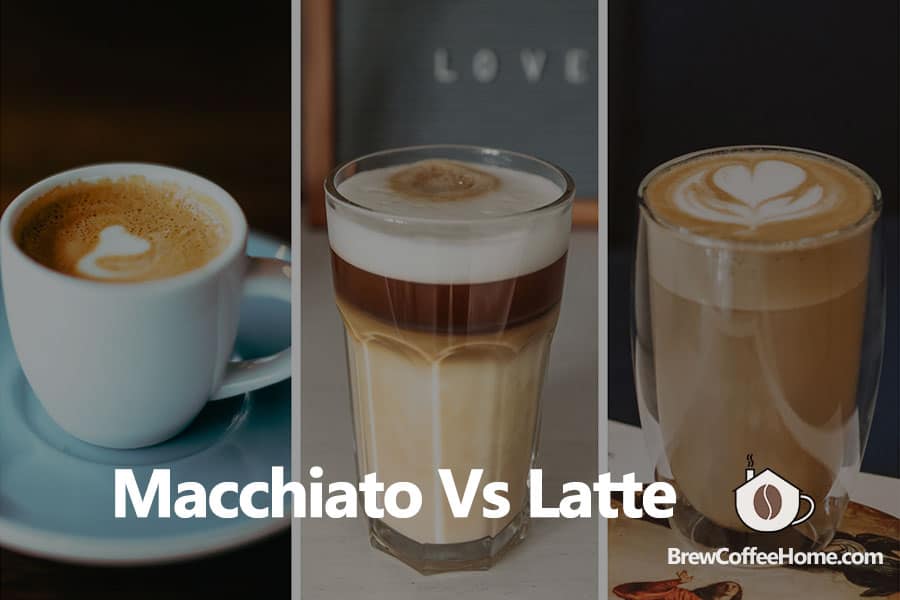
Macchiato Vs Latte Difference Between These Popular Coffee Drinks
In 2020, the latte was the most-ordered drink in the UK. The macchiato has also grown significantly more popular over the last few years. Many latte drinkers are perplexed at how the two coffee drinks are different, but they are in a few ways. Carry on reading to discover the differences between a latte and a macchiato.

Unraveling the Mystery of Latte vs. Latte Macchiato
A macchiato uses espresso and steamed milk, whereas a latte combines espresso, steamed milk, and a layer of microfoam. A traditional macchiato would have a milk-to-coffee ratio of 1:2, whereas a typical latte uses two parts milk and one part coffee (2:1). Because it has a higher ratio of espresso, a macchiato is rich in coffee flavors, whereas.
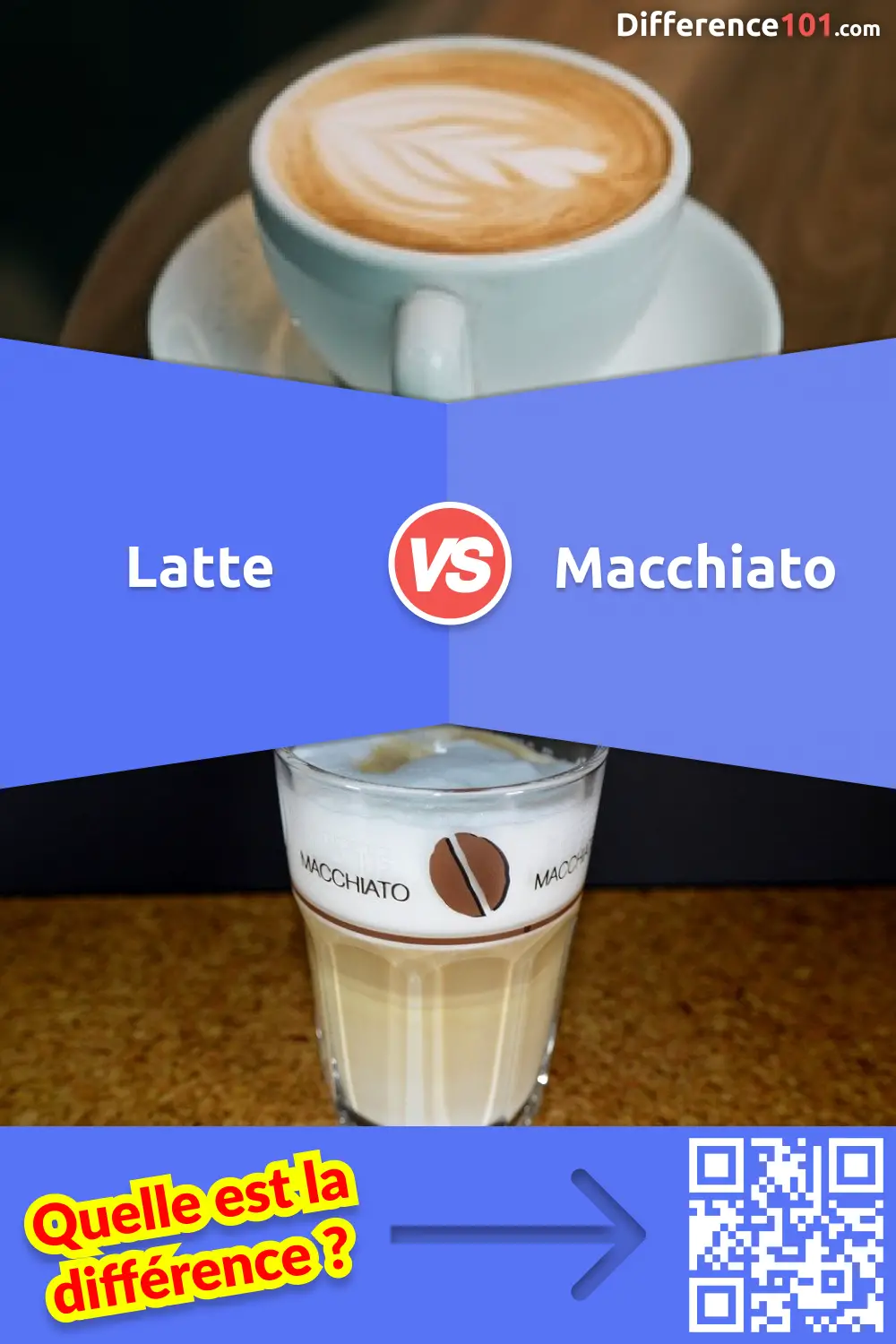
Latte vs. Macchiato Les 11 principales différences, Avantages et Inconvénients Difference 101
In a Latte Macchiato, the milk-to-coffee ratio is 1:2, while the Caffe Latte has a 2:1 ratio. This difference results in a stronger coffee presence in the Latte Macchiato. Additionally, the Caffe Latte typically has a thicker layer of milk foam or microfoam on top, whereas the Latte Macchiato has a thinner foam layer.

Cappuccino vs. Latte vs. Macchiato — What’s the Difference? Cappuccino recipe, Macchiato
Lattes contain the most milk and are the highest in calories, fat, and protein. Cappuccinos contain a bit less milk, but still provide a good amount of calories, protein, and fat in each serving.